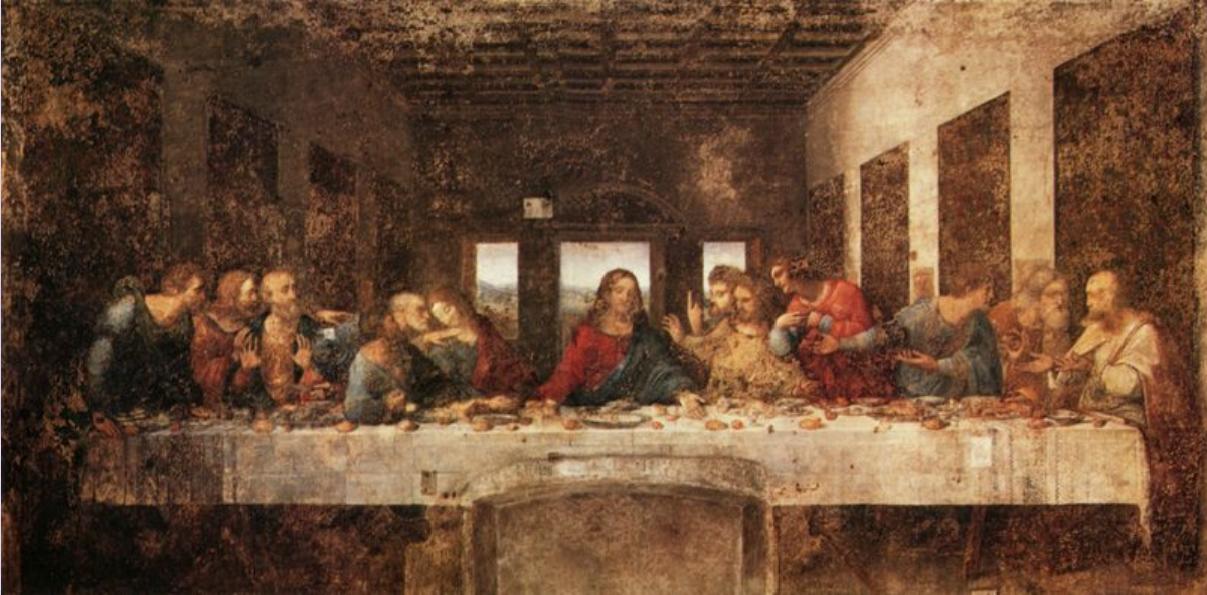A Difficult Interview
Fame makes one mysterious. Fame also disturbs a famous person’s
quiet life. And, as you will read, fame throws Mr. Hummer and the woman
journalist into an awkward but interesting situation.

The recent large exhibition of the paintings
of Mr. James Hummer drew a lot of attention to this artist. (Question:
Do you like to visit painting exhibitions?)
At seventy, he had been painting quietly for
over fifty years, and up till then he had only held small exhibitions
of his work. These had brought him a small amount of fame, but suddenly
everyone was talking about him and everybody knew his name. People said
he was an “Important Contemporary Artist”. Mr. Hummer, for his part,
shook his head and asked himself why people wouldn’t leave him alone.
He said he had no time for meeting journalists, but of course all the
newspapers and magazines wanted to interview him. He didn’t like to
be famous.

His friends, however, said that underneath
he was charming and only outwardly seemed a little strange. They explained
that he was sometimes very shy and didn’t like to talk about himself,
and sometimes quite the opposite. Nobody can tell.
In view of this, it is not surprising that
when a young woman journalist was sent to interview him in his tiny
house deep in the Sussex Downs, she felt rather nervous. But the interview
went worse than expected. (Question: Why was she nervous? What questions
would you ask Mr. Hummer if you were the journalist?)
When she arrived, Mr. Hummer was sitting at
a small unsteady table and could hardly be seen for a forest of paint-brushes
in pots of water. In the middle of these was a bottle of whisky. From
time to time he poured some into a paint-stained glass and drank it
rapidly.

He smiled politely and said that of course he didn’t mind answering
some questions. He drank some whisky and put his head on one side as
if to hear the questions better. He looked like a serious artist.
In what she hoped was a suitable voice, the
girl asked him what purpose in society he fulfilled as a painter. She
wanted to know whether he saw his duty as a painter to be teaching people
or entertaining them. Then there was a dry laugh, and then silence for
a long time. The girl began to wonder if he hadn’t heard her, but at
length Mr. Hummer coughed and broke the silence by asking slowly what
on earth she expected as an answer to such a question. He only painted
pictures, he said, and left other people to say what they meant and
why he had done them.

Now it was the girl’s turn to look astonished.
This was not the way Important Contemporary Artists were supposed to
speak. They always had their own theories. Feeling foolish, she asked
if it had really been as easy as that to paint the brilliant pictures
that everybody admired. Mr. Hummer only smiled to himself and invited
her to have some whisky. Then silence again. The only thing she could
do was to try again, the girl thought, so she asked him why he had become
a painter. This time Mr. Hummer was very quick, but replied with another
question. He asked her how she earned her living. Painting, he continued,
was like coal-mining: it was a job which filled the space between cradle
and grave, and he happened to do it quite well. (Question: What did
the girl expect from Mr. Hummer?)

The interview seemed to have gone quite wrong.
Looking for an easy question, the girl asked him about the visits she
had heard he regularly made to London. She wondered what he liked to
do there and if he enjoyed going to art exhibitions, for instance. He
suddenly drew back. No, he said, he never went to those places, asking
scornfully what she thought the point of such visits would be. He went
to London, he explained, to meet his friends, and in answer to another
question added that while of course some of them were artists, others
of them weren’t. Some of them were men and some were women, but that
was of no significance as they just usually liked to talk. Asked what
they talked about, Mr. Hummer appeared to think hard for a minute. Everyday
things, he began; the weather; other people; food … Suddenly his face
brightened wonderfully. Leaning forward, he asked her if she liked food,
continuing, before she had had time to reply, that what he liked was
fish, and best of all, octopus. He could give her a marvellous recipe
for octopus soup, he added. He was about to ask if she knew the best
place in London to buy fresh octopus when she interrupted him.

“Do you like being interviewed, Mr. Hummer?” she asked. He turned his
head sharply towards her with his eyes glittering.
“Do you?” he replied, and softly began to
laugh and laugh to himself. (Question: Was the interview only difficult
for the journalist or was it difficult for both the interviewer and
the interviewee?)

Simplified form Easy Comprehension Practice
in English,
ed., Jenny Marchant, London, 1975.
Approximately 820 words.
|